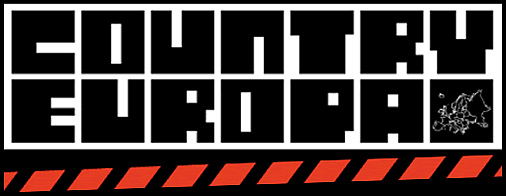
COUNTRY EUROPA deals with the problem of contemporary knowledge production from the point of view of several contradictions. For instance, the contrast between the forms of transnationalisation or globalisation that contemporary art or culture supposedly permit or encourage, and the reality of control and discipline that is exercised on the international circulation of populations. Between the dream of free-flowing circulation of individuals and creativity, and the everyday microfascism of the border regime and migration laws. In that sense, our intention has been to make visible this paradoxical experience of our own travels between Latin America and Europe.
We were originally commissioned to carry out an artistic intervention in an archetypal segregated, protected space: a jail, the Murcia Penitentiary Centre. The furthest place imaginable from the free and publicly accessible nature of the idealised image with which the globalised system of contemporary art chooses to identify itself with. Since we did not want to transform our collaboration with the inmates into a biennialised spectacle of the otherness, we countered with a proposal for a broader project, which would focus on various contemporary typologies of spatial segregation, border division, and control of the movement of people. In this counterproposal, our intervention in Murcia jail — in the form of a photography workshop which involved the participation of a mixed group of male and female inmates — would be just one element in a larger ensemble.
In that sense, knowledge production and art production are conceived as profoundly intertwined in COUNTRY EUROPA. Art and knowledge are produced under the following contradiction: while it is possible to create a space for autonomy, with the aim of constructing an experimental process of collective re-subjectivation, our work is also overdetermined by several institutional frameworks to which we are inevitably subordinated. We believe this contradiction can be and needs to be politically dealt with from within. In the context of a psychotic Europe, where everyday life is being transformed under the sign of fascistization, micropolitical experiments on collective re-subjectivation are becoming more and more urgent wherever they are possible.
The website countryeuropa.net contains the final editings of COUNTRY EUROPA. Among other materials, it includes the images produced during the photography workshop carried out with male and female inmates of the Murcia Penitentiary Centre. As such, COUNTRY EUROPA is a collaborative work. Its final form consists of two publications (a full book and its abridged version in booklet format) and other text/image materials, which can be downloaded free.
COUNTRY EUROPA is a project by Marcelo Expósito and Verónica Iglesia. It was produced for Manifesta 8 European Biennial of Contemporary Art — within the section The Rest is History?, under the curatorship of the Chamber of Public Secrets (CPS) — and at the same time is also part of the collective research project creating worlds — carried out by the european institute for progressive cultural policies (eipcp).